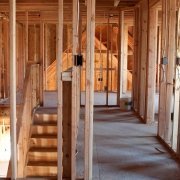Should you get a pre-purchase property inspection? A lawyer’s perspective.

Experienced eyes
While a lawyer may know the ins and outs of your potential new home on paper, lawyers rarely get the opportunity to visit the house in person. So, it’s important to get experienced eyes on the property that both you and your lawyer can trust.
“Building inspectors have the skills required to spot things that people without the experience would probably miss,” says Campbell. “First home buyers, in particular, often don’t know what to look out for in a potential home, which is why it’s important to get some property inspection advice as early in the purchasing process as possible.”
Any questions about the report – from both you and your lawyer – can always be posed back to the building inspector. It’s crucial that you understand the report in its entirety before making an agreement unconditional, so that you don’t find yourself in a predicament later on.
“The building inspector knows what they saw and the significance of any issues they spotted, so their advice and insight is essential for the process.”
Knowing the ins and outs of your property
Issues, like wonky piling or cracks in foundations, don’t arise all of the time – Campbell estimates between 25-30% of all property inspections may reveal problems. Even so, property inspections are immensely useful in getting to know the details of your future home, as well as the small things that you might need to pay attention to in the future.
“Inspections are useful not just as a tool for getting out of completely disastrous contracts, but are also good for identifying things that might just need fixing,” explains Campbell. “They’re an opportunity to make sure the property is in as good a condition as possible before buying it.”
Some small issues may just be things you should know about fixing or renovating in the future, like doors that don’t close properly or ranch sliders that may not open smoothly. Other problems in the property inspection may be ones you can ask the vendor to fix. Campbell recently worked on a property in which the kitchen fan was venting into the roof rather than to the exterior of the property. They were able to ask the vendor to repair the vent and the process quickly continued towards the purchase.
Legal protection
Property inspections should happen as close to the beginning of the purchasing process as possible – before an auction as well as before making an agreement unconditional. Your lawyer may recommend a condition in the agreement dictating that an inspection will take place within a specific timeframe – normally 10 working days.
“The best advice is to get the right advice as early as possible in the process,” says Campbell. Otherwise, mistakes might happen that are difficult to fix.
Without a property inspection, you can get into trouble before you even purchase the property. Not doing all the research on the house or taking the right precautions before signing an unconditional agreement means that you may be stuck with an unfit house. Even more awkward can be being unable to actually complete the purchase; some banks may not be willing to finance your purchase if you haven’t had the property inspected.
“A lot of people just don’t know how to go about the process, so it’s important to get the best advice from your lawyer and from a property inspector right from the beginning.”
Found the house you love and thinking of purchasing it? The Property Inspectors have been working alongside lawyers for years, and are familiar with the ins and outs of what can often be an intimidating and confusing process. With a pre-purchase property inspection and expert advice from your lawyer, purchasing your dream home will be easier for everyone involved.
Get a free quote for your pre-purchase property inspection now:















